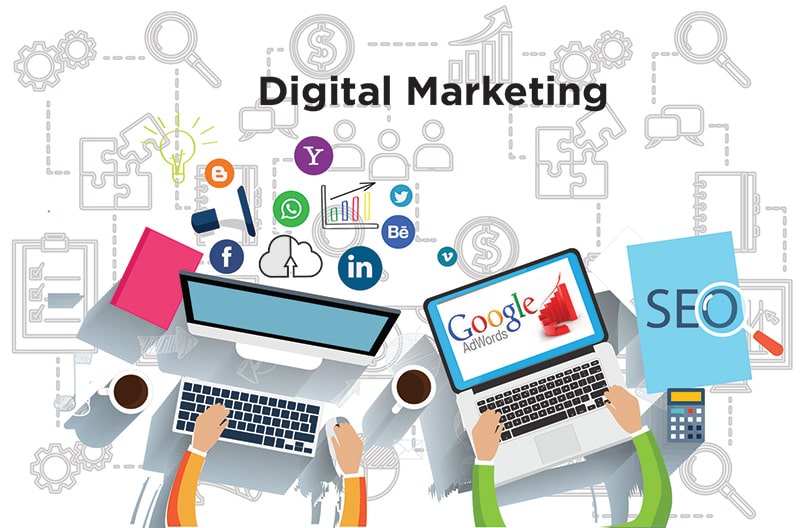Digital marketing has become a crucial element in the success of modern businesses, transforming the way companies reach and engage with their customers. With the rapid rise of the internet and social media platforms, digital marketing has expanded far beyond traditional methods, offering a wide range of tools and strategies to connect with consumers. From search engine optimization (SEO) and social media marketing to email campaigns and paid advertising, digital marketing allows businesses to tailor their approach, reach their target audience, and measure their success in real time. In today’s digital age, a strong online presence is essential for businesses that want to stay competitive and relevant in their industry.
One of the primary advantages of digital marketing is its ability to reach a global audience. Unlike traditional marketing methods that are often limited by geography, digital platforms provide businesses with access to millions of potential customers worldwide. Social media, search engines, and email marketing enable companies to interact with their target audience regardless of location, making it easier to expand their reach. This global access has leveled the playing field for smaller businesses, giving them the same opportunities to compete with larger brands in terms of visibility and customer engagement. Additionally, digital marketing allows businesses to tailor their content to specific demographics, ensuring that the right message reaches the right people at the right time.
Another significant benefit of digital marketing is its cost-effectiveness. Traditional advertising, such as television, radio, and print media, often comes with high costs that can be prohibitive for small and medium-sized businesses. Digital marketing, on the other hand, provides a more affordable alternative. Social media platforms, email marketing, and content marketing offer various budget-friendly options that can be scaled according to a company’s needs and resources. Paid advertising campaigns, such as pay-per-click (PPC) or sponsored posts, allow businesses to set specific budgets and only pay when users take action, making it easier to control costs while ensuring a strong return on investment (ROI).
Data-driven insights are another powerful aspect of digital marketing. Unlike traditional marketing methods, where it is difficult to track the effectiveness of a campaign, digital marketing allows businesses to gather valuable data on consumer behavior, preferences, and engagement. Through analytics tools, companies can measure key performance indicators (KPIs) such as website traffic, conversion rates, and customer interactions. This information enables businesses to make data-driven decisions, refine their strategies, and continuously improve their marketing efforts. By understanding what works and what doesn’t, businesses can allocate resources more effectively and focus on campaigns that yield the best results.

The rise of social media has also dramatically influenced jasa iklan instagram pakar strategies. Platforms like Facebook, Instagram, Twitter, and LinkedIn have become essential tools for businesses to connect with their audience on a more personal level. Through social media marketing, companies can build brand awareness, engage with followers, and create communities around their products or services. Social media platforms also offer advanced targeting options, allowing businesses to reach specific groups based on factors such as age, location, interests, and behaviors. Additionally, the ability to create shareable content and leverage influencers has expanded the ways businesses can amplify their message and foster customer loyalty.
Looking toward the future, digital marketing is expected to continue evolving with advancements in technology. The rise of artificial intelligence (AI) and machine learning is already influencing marketing automation, predictive analytics, and customer segmentation. AI-powered chatbots and personalized content delivery are becoming increasingly common, providing consumers with tailored experiences that drive engagement. Video marketing, voice search optimization, and virtual reality (VR) are also gaining momentum, offering new ways for businesses to connect with their audience. As these technologies continue to develop, businesses that embrace and adapt to these innovations will be better positioned to thrive in the ever-changing digital landscape.
In conclusion, digital marketing has transformed the way businesses approach customer engagement, brand awareness, and sales. With its ability to reach a global audience, offer cost-effective solutions, provide data-driven insights, and capitalize on social media trends, digital marketing has become an indispensable tool for companies of all sizes. As technology continues to evolve, businesses that invest in digital marketing strategies will be better equipped to stay competitive, attract new customers, and achieve long-term success in the modern marketplace.
